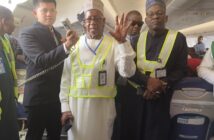By Ibrahim Musa 08037023343, musaibrahim51@gmail.com
In today’s interconnected world, the accessibility of religious texts through digital platforms has transformed the way individuals engage with their faith. Mobile applications offering translations of the Quran in various languages have become indispensable tools for millions of Muslims worldwide, providing convenient access to spiritual guidance and reflection. However, recent discoveries have shed light on significant inaccuracies within Hausa Quran translation apps, prompting a collective call for corrective action within the Hausa Muslim community.
My journey into this issue began innocuously one morning when I turned to my phone to read verse 62 of Suratul Namli from an app named “The Holy Quran Hausa.” As I eagerly awaited the translation, I was met with a startling realization: the interpretation provided was fraught with errors. Disheartened by this discovery, I turned to a trusted source – the Hausa translation of the Quran by Shaikh Abubakar Mahmud Gumi – to verify the accuracy of the verse. To my dismay, I found that crucial elements of the verse were omitted in the app’s translation, distorting its intended meaning and raising doubts about the reliability of the content.
Seeking clarity, I embarked on a quest to examine other Hausa Quran translation apps, hoping to find a more accurate rendition of the verse. However, my efforts yielded disheartening results as I discovered that multiple apps mirrored the same erroneous translation, word for word. It became evident that these apps drew their translations from a common source, highlighting systemic deficiencies in the vetting and validation processes of Quranic translations in Hausa.
Further scrutiny revealed a multitude of proofreading oversights in these translations, indicating a lack of meticulousness in their preparation. Recognizing the gravity of the situation, I felt compelled to take action and contribute to the rectification of the Hausa translation of the Quran. With over three decades of experience in proofreading Hausa texts, I recognized the importance of upholding the integrity of the Quran in the Hausa language and resolved to play my part in ensuring its accuracy and authenticity.
However, addressing this issue requires a concerted effort from the entire Hausa Muslim community. It is imperative that we come together to sponsor comprehensive proofreading initiatives and mobilize dedicated individuals to undertake the task of rectifying the inaccuracies prevalent in Hausa Quran translation apps. By pooling our resources, expertise, and commitment to excellence, we can expedite the process of producing an authentic and error-free Hausa translation of the Quran that adheres to scholarly standards and preserves the sanctity of our sacred scriptures.
Furthermore, users of these apps must exercise discernment and advocate for the adoption of reliable translations that adhere to scholarly standards. As consumers, we have a responsibility to demand accuracy and reliability in the content we access, particularly when it pertains to matters of faith and spirituality. By holding developers and publishers accountable for the quality of their translations, we can foster a culture of excellence and integrity in the dissemination of Quranic knowledge.
In conclusion, the prevalence of error-laden Hausa Quran translation apps underscores the urgent need for corrective action within the Hausa Muslim community. By prioritizing accuracy, accountability, and scholarly rigor, we can ensure that future generations have access to authentic and reliable translations of the Quran in the Hausa language. Let us heed the call for reform and work together to uphold the sanctity of our sacred scriptures and strengthen our spiritual connection with the divine.
Ibrahim Musa wrote from Kaduna. He is the Editor-in-chief of ALMIZAN Hausa newspaper.



